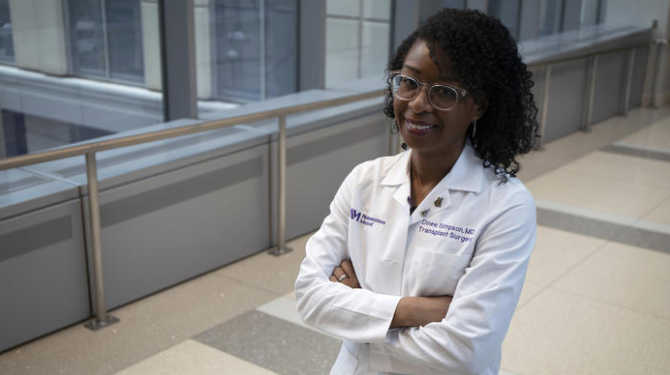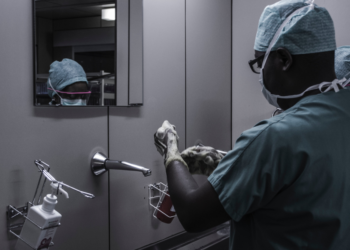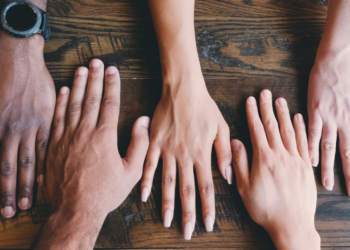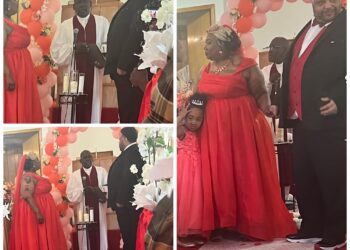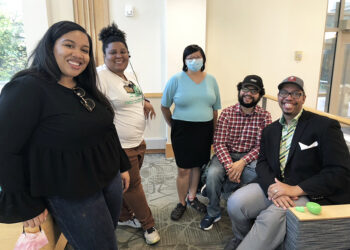A surgeon’s tweet about reconnecting with her former transplant patient recently went viral, and her reaction was priceless.
Dr. Dinee Simpson was having what she described as a “bad morning” and decided to go out for some coffee. She detailed what happened next in the now-viral tweet that garnered more than 272,000 likes at the time of publication, Newsweek reported.
“Woman next to me stared at my ID badge and started to cry,” read Simpson’s tweet. “I did her liver transplant last year. She was so sick then. Today, she had her hair did, makeup on, and looked FABULOUS. Unrecognizable. Gave me the BEST hug. I love this job.”
https://twitter.com/DineeMD/status/1501227520816939012
The two decided to catch up while waiting for their orders before Simpson had to return and perform surgery that day. Usually, surgeons don’t run into former patients outside of the hospital. However, Simpson was taken aback at the thousands of reactions she received after she tweeted the exchange.
A nurse informed Simpson that she was receiving notifications on her phone non-stop while performing surgery. But, she didn’t get a chance to check all of them until she had some free time. At that moment, she realized the heartfelt reunion had taken off on Twitter.
“I was like, ‘Oh my gosh, this is crazy,'” she told Newsweek. “Then I just watched it grow, and it was insane.”
Since posting the tweet, Simpson said she had received comments from people calling her a hero and thanking her for giving those in need a second chance at life. Though she doesn’t view herself as a hero, she said the real heroes are those who go through becoming organ donors.
A person deciding to become an organ donor is an emotional process. The surgeries and transplants can carry a mixture of emotions for the donor and the person receiving the transplant.
“You’re turning someone’s grief into somebody’s hope,” Simpson said. “So, it’s really charged with a lot of emotion.”
According to the Health Resources and Services Administration, more than 100,000 men, women, and children are on the national transplant waiting list.
Simpson explained that one organ donor could make a difference for those needing a kidney, heart, or lung transplant.
“Being an organ donor is an incredibly heroic move,” Simpson said. “The surgical team can’t do anything unless we have the gift of somebody’s donated organ.”
“This is a procedure that gets somebody back to living their life to its fullest,” she added.
Simpson works with Northwestern Medicine in Chicago, Illinois. She has worked as a transplant surgeon since 2015 after completing a training program in general surgery at Harvard.
After she spent nine years at Brigham and Women’s Hospital, the teaching hospital at Harvard Medical school, she transitioned into a two-year program in transplantation.
In addition to her work as a transplant surgeon specializing in liver and kidneys, Simpson does outreach in this particular area in her career.
“I actually founded a program at Northwestern called the African American Transplant Access Program because data shows that Black patients are much less likely to have access to transplants,” she said.
Simpson explained that some time had passed since she had last seen her former patient. She said she would see patients right after surgery or drop in to see how they’re doing while still in the hospital.
While she runs a clinic for patients who have received transplants, this former patient could not make it. However, Simpson said the brief reunion was met with positive messages and even inspired others to share their transplant stories.
“It was really beautiful to see social media working in a positive way, to spread good news and to connect people with their stories and experiences,” Simpson said.
Some Twitter users asked why she was focused on the patient’s hair and makeup being done, to which she responded, “It was self-care, and it was shown that she was thriving,” she said. “She wasn’t just getting by, she was thriving and living her best life, and I love that.”


